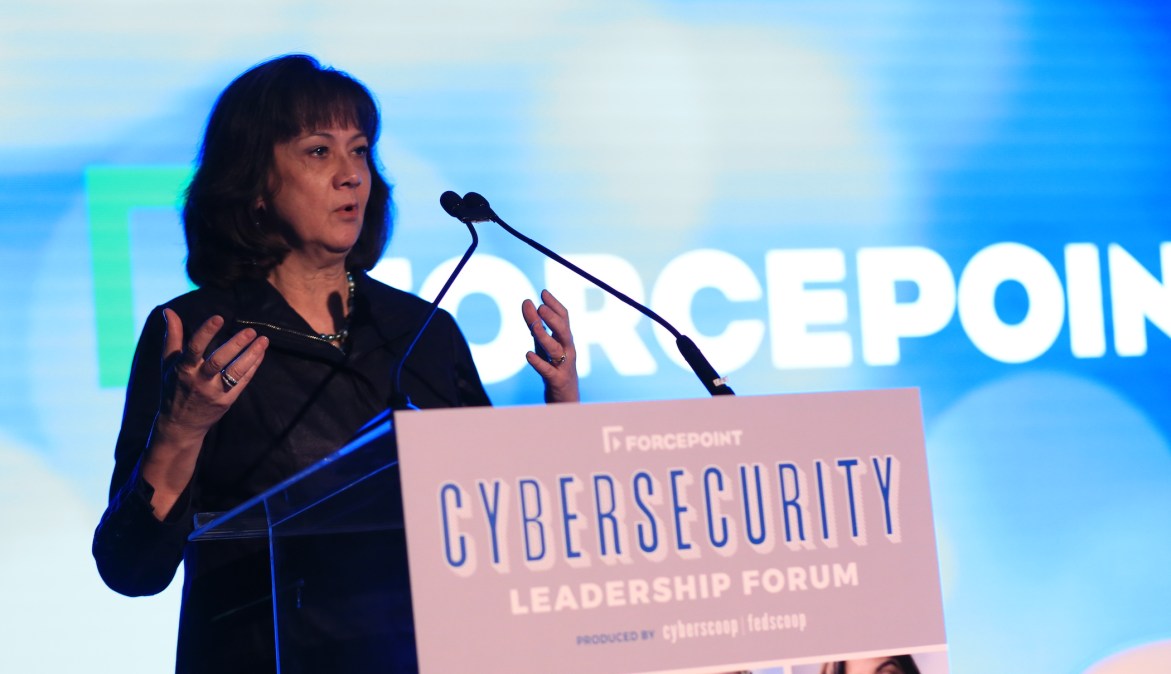Department of Energy closely watching DOD’s JEDI implementation

The Department of Defense’s adoption of commercial cloud through the Joint Enterprise Defense Infrastructure program won’t just affect the military services and defense support agencies.
The Department of Energy is closely watching the Pentagon’s JEDI implementation to see how it may change the way the two interact when sharing information, said Karen Evans, assistant secretary for the Office of Cybersecurity, Energy Security, and Emergency Response (CESER).
DOD and DOE work closely together on cybersecurity of the nation’s critical energy infrastructure, Evans explained Monday at a DOD CIO awards ceremony. Particularly, Evans and her office meet and work regularly with Cyber Command and NSA around “the whole what does it mean to defend forward, and how is DOD going to work with the private sector to make sure power stays up?”
Other federal agencies, like the intelligence and law enforcement communities, are also likely watching DOD’s implementation of JEDI, both for partnership and information sharing purposes but also to learn lessons in what’s positioned to be a massive migration — worth up to $10 billion over 10 years with contract extensions.
“We always look forward to seeing how DOD accomplishes migration to the cloud,” Evans said. “You guys have your big cloud award out there, so of course DOE is looking to see how that implementation is going to go forward. We will be right there with you, just a little bit behind, lessons learned from how you guys are doing stuff.”
Evans said this means “we need to have that same solution in place because we have to interact” with DOD. This doesn’t mean DOE is going to go off an award it’s own billion-dollar cloud contract just to communicate with the Pentagon — but it could build an enclave and adopt similar standards with the same cloud provider for maximum interoperability.
“That’s critical to us so that we understand what the technical platforms that you’re having in place because we have to be able to exchange and have you access our data so that we can then be able to have shared situational awareness in the energy sector,” she said.
Two weeks ago, the Pentagon awarded the JEDI contract to Microsoft, which edged out Amazon Web Services for the win. It remains to be seen if AWS will protest that decision.






